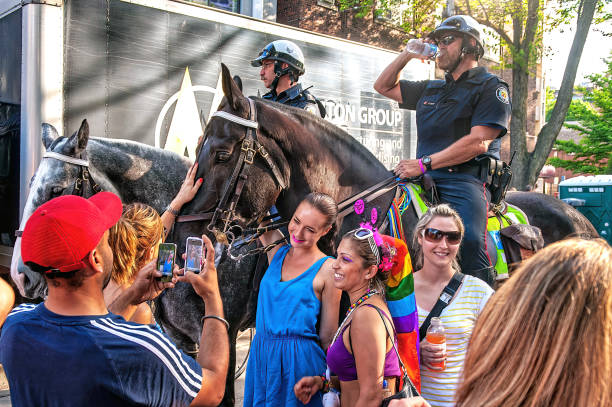Need Something More?
Check out our self-directed Spouse or Significant Other Wellbeing Course.

An awareness of the ways that social media and news coverage might negatively affect your family is a great way to start the conversation. Talking about potential problems encourages families to work together to manage the risks. Certain sectors of PSP are criticized on social media in ways that are not easy to ignore, and this can have different effects on family members. Open communication allows family members to share their experiences and discuss ways to respond when issues arise (e.g., explaining the facts to trusted friends and encouraging children to report bullying to parents and school authorities).
Social media is how many people stay connected to friends and events happening around the world. It is a popular and useful mode of communication for all ages. No one wants to toss away their phone or shut down the internet but, like many things in life, moderation is key. There is some evidence that overuse of social media is linked to poorer mental health generally and PSP families have additional concerns. Misinformation about PSP can start a chain of negative social media posts that are disturbing. There is also a risk of seeing images of events that a PSP family member is responding to which heightens worry. It is unlikely that we are going to put a stop to misinformation and videos that go viral but changing social media habits can reduce your exposure.
The following checklist items are suggestions for anyone trying to limit online activity, but they may be of particular interest to PSP families who are targeted by or sensitive to certain social media content.
Begin by answering the following reflection questions in the space provided and then use the checklist to assess what you are currently doing to limit your exposure to social media and things you might want to try. You will have an opportunity to download and print your list to share with other family members.
Check out our self-directed Spouse or Significant Other Wellbeing Course.
Carrico, C. P. (2012). A look inside firefighter families: A qualitative study. ProQuest Dissertations Publishing. https://digscholarship.unco.edu/cgi/viewcontent.cgi?article=1088&context=dissertations
Walsh, F. (2016). Strengthening family resilience (3rd ed.). The Guilford Press.